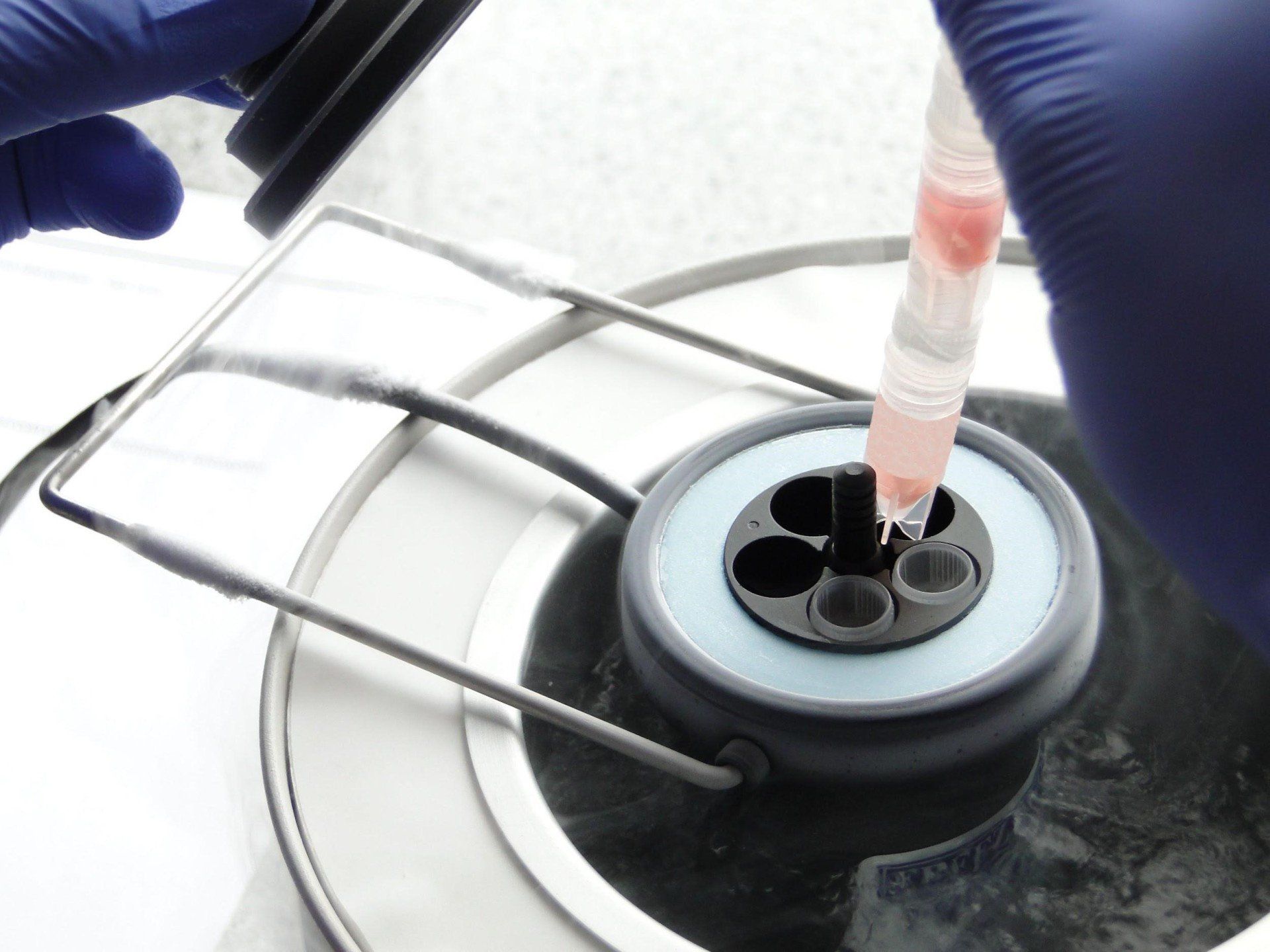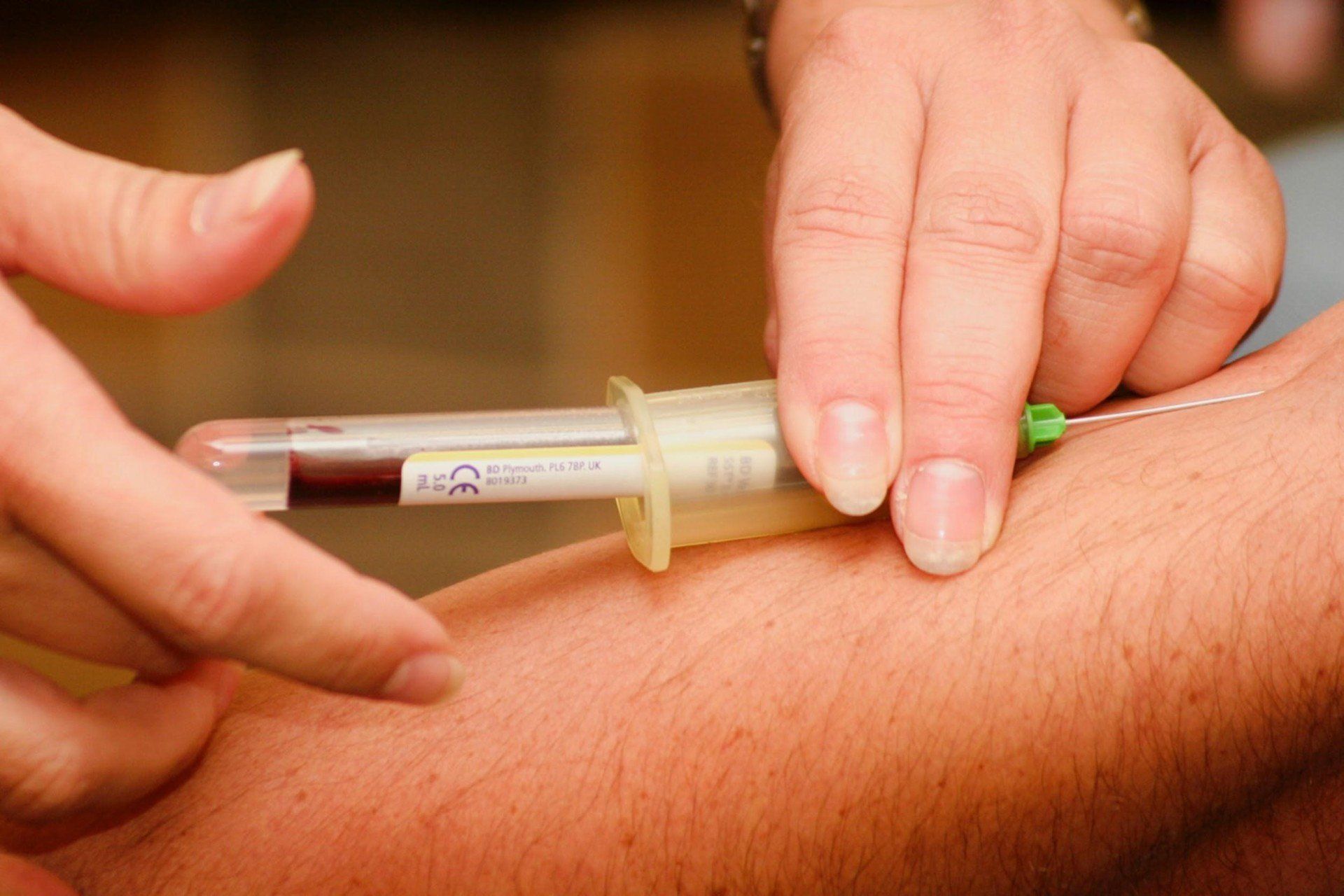In-Vitro Fertilization (IVF) FAQs
For those struggling to get pregnant, finding something that works can seem impossible. That's where IVF comes in: IVF, or in-vitro fertilization, helps with fertilization and embryo development so pregnancy is possible. In IVF, a woman's eggs and a man's sperm are combined in a laboratory to create an embryo. Then, the embryo is transferred back to the woman to increase the chances of pregnancy.
IVF can be used for couples experiencing infertility, same sex couples, and single women pursuing motherhood. If you're curious about the process, how it works, and potential costs, read more about it below.
How Does IVF Work?
The specifics for IVF can vary slightly among healthcare providers, but the process has remained very much the same.
Ovulation Induction
At the start of your cycle, you'll receive synthetic hormones to stimulate multiple egg production (instead of the one egg per month that you usually develop). You'll need multiple eggs to increase the chances of fertilization. There are many medications you may need in addition to one that stimulates the ovaries, such as medications for egg maturation, premature ovulation prevention, and uterine lining preparation.
About 2 weeks after you've begun medications, your doctor will perform a vaginal ultrasound to monitor the development of your eggs. Your doctor may also perform blood tests to measure how well you're responding to the medications.
Egg and Sperm Retrieval
For egg retrieval, you will be given sedation and medication for pain. The doctor will first use transvaginal ultrasound aspiration: An ultrasound probe is inserted and used to identify follicles, then they will use a thin needle to go in and retrieve the eggs. If the ovaries are not accessible via transvaginal ultrasound, an abdominal ultrasound will be used.
The eggs are removed from the ovaries using suction. After egg retrieval, mature eggs are placed in a nutrient-rich liquid and incubated.
If your partner is donating their sperm, they will provide a sample of their semen at a doctor's office or clinic. They may also use testicular aspiration (use of a needle to extract sperm from the testicle).
Fertilization and Transfer
There are two methods of fertilization: Conventional and intracytoplasmic. Conventional insemination is when the eggs and sperm are mixed and incubated. Intracytoplasmic insemination is when a single, healthy sperm is injected into each of the mature eggs. Depending on your situation, your doctor may recommend transferring the embryo immediately or after it develops for a few days.
Embryo transfer is done at a doctor's office or clinic. You will be given a mild sedative, then the doctor will insert a catheter into your uterus. A syringe is attached to one end of the catheter, and the embryo is placed into your uterus via the catheter. If there is success in IVF, the embryo should implant in the uterus 6-10 days post-retrieval.
Read our article about 4 Ways to Test Your Fertility Before Treatment.
Who is Eligible for IVF?
IVF is done for people who suffer from infertility or genetic problems. If infertility is the problem, you and your partner may try less invasive treatment options before IVF (such as fertility drugs or intrauterine insemination). However, if these treatments don't work, IVF can be worth a try.
IVF is offered as the primary treatment for infertility in women age 40 and over. It can also be done for women and their partners with certain health conditions, such as:
- Fallopian tube damage or blockages
- Ovulation disorders
- Endometriosis
- Uterine fibroids
- Previous sterilization or tube removal
- Male infertility/below-average sperm count
- Fertility preservation for specific health conditions
What are the Risks of IVF?
As with any medical procedure, there are risks associated with IVF. However, some of these risks are unique to IVF, including the risk of multiple births or miscarriage.
IVF increases the risk of multiple births if more than one fertilized embryo implants in the uterine wall. As a result, there is a high risk of early labor and low birth weight. As in a typical pregnancy, these are also possible even if only one fetus is present.
Ovarian hyper stimulation syndrome is also a risk of IVD. This is when the ovaries' have an extreme response to excess hormones. This can occur if you are taking injectable hormone medications to stimulate egg development. Symptoms in mild cases include swollen, hyper-sensitive ovaries, as well as bloating, nausea, vomiting, and diarrhea.
Miscarriage is a risk of any pregnancy and occurs at about the same rate as women who conceive naturally. However, it's important to note that the risk of miscarriage increases with maternal age. Those who conceive using IVF are often older than those who conceive naturally.
Complications with egg retrieval, such as bleeding, infection, or damage to the internal organs is possible as it is with any invasive procedure. There are also risks with the use of general anesthesia and sedation.
By far, the most common risk of IVF is stress. The use of IVF is financially, physically, and emotionally draining. It's important to get support from friends, family, or a counselor to help you get through treatment.
What is the Cost of IVF?
IVF costs are undeniably expensive. The general cost of IVF hovers around $10,000-20,000 (USD) for most couples trying to conceive. This ballpark estimate includes medications, ultrasounds, blood tests, clinic fees, egg extraction and handling, storage, and embryo transfer. Your insurance may have infertility benefits which can cover most or all of the costs of IVF. You can also ask about financing options.
Unfortunately, one round of IVF may not be enough to conceive. It's important to know that this estimate can be multiplied two or threefold if the first rounds don't work. Although there is no guarantee that IVF will work, the success rate can increase after multiple rounds of treatment.
Conclusion
If you're having trouble getting pregnant, you have options. You can start by talking to your doctor about how to improve your chances of conceiving. If these don't work, ask them to refer you to a fertility specialist who can give you more options such as IVF.
The process of IVF can seem overwhelming and you may have a lot of questions. Feel free to contact us now
if you have additional questions!
For many couples dealing with infertility, IVF (or in vitro fertilization) is their best chance for conceiving a child. But unfortunately, this type of treatment isn’t a guaranteed success, and it can be disheartening for couples who experience failed IVF. Not only is IVF a significant financial commitment, but those who undergo it also sacrifice a great deal of mental energy due to the stress it can create. If you are struggling to conceive through IVF treatments, you deserve to know why it might be failing. Our team at Fountain of You has compiled some of the most common causes of failed IVF. Keep reading for more information.
IVF, also known as in vitro fertilization, is a special type of fertility treatment and is also the most common form of assisted reproductive technology (ART) . This type of medical procedure has been around for several decades and has enabled hundreds of thousands of couples to conceive children. If you are considering this type of fertility treatment or would just like to learn more about it, our team at Fountain of You has compiled some IVF facts that are often left out of mainstream discussions of this topic. Read on to learn more about this treatment, its history, and how it may affect you.
The article is a one-stop-shop for all the details about IVF, also known as in-vitro fertilization. You'll learn how long the process regularly takes, along with all potential IVF side effects. The purpose is to provide you with information so that you can make an informed decision. If you have any specific questions not answered in this piece, feel free to contact our office. We would be happy to respond to any queries.
The decision to become a single mother is a challenging one. Maybe you had envisioned having a partner at this stage in your life but haven’t found that special person. Yet you’re ready to have a child, even if it’s on your own. Fortunately, it’s possible for you to fulfill your dream of being a mother with or without a partner. IVF for single women makes your dream a reality. Here's everything you need to know about this miraculous process.

Freezing eggs is medically known as oocyte cryopreservation. It is the procedure in which a woman's eggs are extracted, frozen and preserved to retain their ability to reproduce at a later age. Freezing eggs has gained popularity among many young women that want a chance of motherhood later in life. Below are a few reasons why women freeze their ovum, as well as things to consider if you decide to freeze before IVF.

Some couples endure unforeseen struggles when starting their families. Sometimes, they need to turn to IVF treatments due to prolonged difficulties with conception. Couples often go overseas in search of IVF. Oftentimes, patients seek IVF in places outside of their home countries like Bangkok due to factors like: More affordable care A higher percentage of positive treatment outcomes compared to a patient's home country A wider range of IVF treatments are available More esteemed doctors in the reproductive endocrinology and infertility (REI) field Here, we will outline how our IVF treatments in Bangkok can help you conceive.






